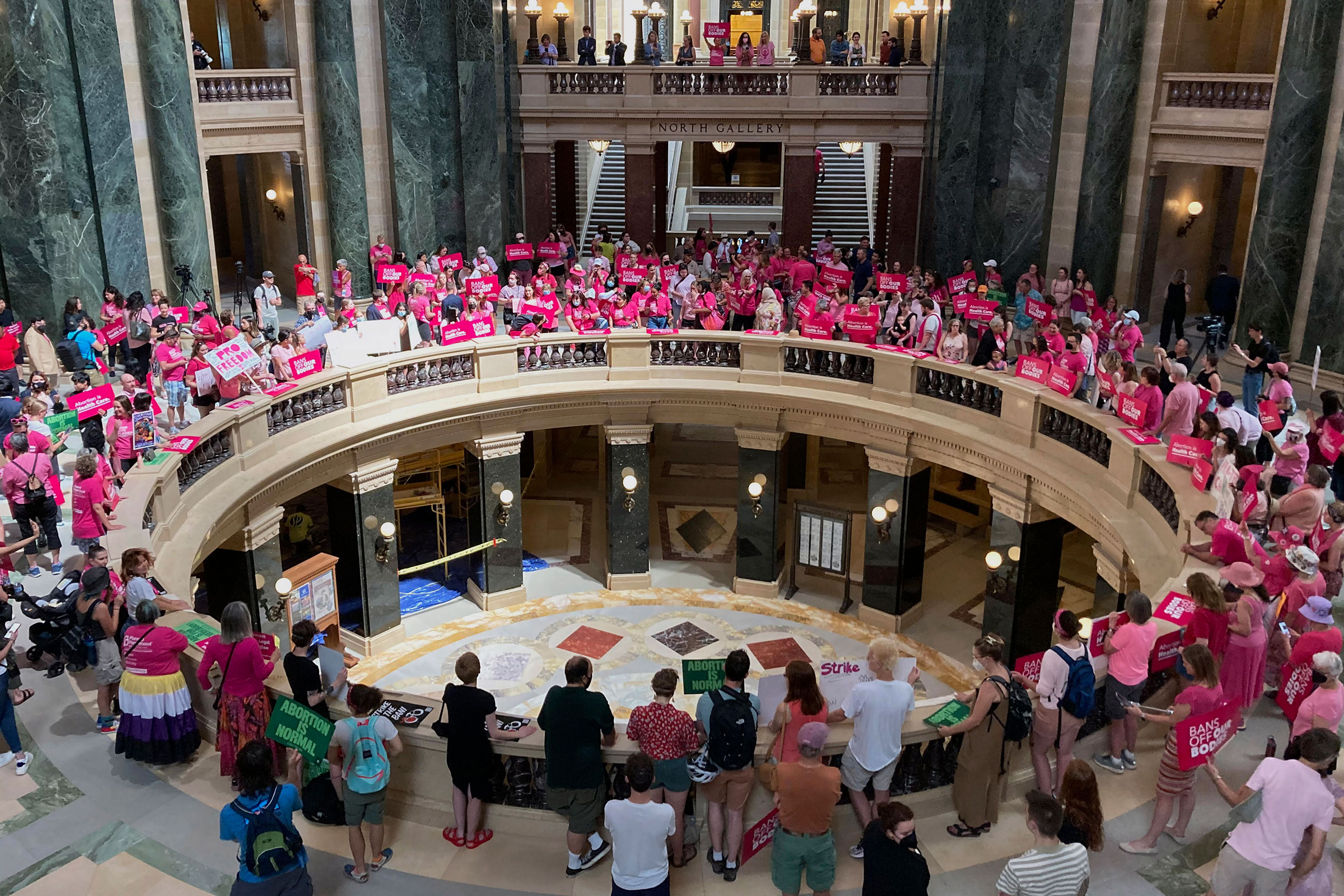
After the Supreme Court’s decision in Dobbs v. Jackson Women’s Health Center, which overturned the constitutional right to an abortion, abortion rights will now largely be left up to states.
That means access to the procedure—and restrictions on it—are about to change even more dramatically depending on where you live. At least 23 states are likely to ban abortion in some form, according to a TIME analysis of data from the Guttmacher Institute, a research firm that supports reproductive rights, while 16 states and Washington D.C. will protect abortion rights. The others are in limbo: some states will likely call special sessions of their state legislatures to determine access, others could see access restricted after the midterm elections later this year.
Here’s a breakdown of what abortion access could look like in many states.
States with highly restricted abortion access
Many states have “trigger bans” that were designed to implement total or near total bans on abortion as soon as Roe was overturned.
Bans in Alabama, Arkansas, Kentucky, Louisiana, Missouri, Oklahoma, South Dakota, and Utah took effect immediately. In Idaho, Mississippi, North Dakota, and Tennessee, the new laws are set to go into effect within 30 days. Texas’ trigger law will go into effect 30 days after the Supreme Court issues its judgment.
Already, there have been legal efforts underway to try to reinstate abortion rights in some of these states. Louisiana’s trigger ban was recently blocked by a judge, allowing abortions to temporarily resume. In Kentucky, Idaho, and Utah, Planned Parenthood chapters have filed lawsuits arguing that the states’ constitutions protect the right to an abortion. (Kentucky’s lawsuit was also brought by the ACLU.) Abortion providers in Texas have sued to block officials from enforcing a pre-Roe abortion ban that Texas had on the books before the trigger ban takes effect.
States strengthening abortion access
After a draft of the opinion was leaked in early May, California, Connecticut, Delaware, Hawaii, Maryland, New Jersey, New York, Oregon, and Washington got to work strengthening abortion access to prepare for the Supreme Court’s final decision.
These states will not only continue to provide abortion services, but have also bolstered various laws requiring insurance providers to cover abortion costs, expanded who is legally qualified to provide abortions, or altered extradition statutes to protect abortion providers and patients who travel from states where abortion is banned from being extradited and prosecuted.
States with limited abortion access
Iowa, Ohio, South Carolina, and Georgia all had six-week abortion bans that were previously blocked by courts for violating Roe v. Wade. State officials have looked to quickly reinstate those laws.
The injunction blocking Ohio’s ban was removed, so abortion is now banned at six weeks in the state. After the Supreme Court decision, South Carolina’s governor said he would file motions “by the end of the day” to reinstate the ban. Georgia’s attorney general asked the federal appeals court to allow its law to take effect; a decision from the appeals court is likely to come in the next few days. Indiana’s governor called a special session of the state legislature to pass a new law restricting abortion in the state.
Earlier this year, Arizona and Florida both enacted 15-week bans that were already set to go into effect later this summer. The state legislatures could now potentially pass stricter abortion bans.
Read More: New Abortion Clinics Are Opening Near Borders and Airports to Stretch Access as Far as It Will Go
Michigan passed a law that would criminalize abortions after 15 weeks before the Supreme Court made its decision. The law was challenged in court and is currently being litigated.
Alabama will likely chose between reinstating a pre-Roe abortion ban or resolving litigation against a 2019 law banning nearly all abortions. Iowa’s supreme court just ruled that abortions are not protected by the state constitution, paving the way for state lawmakers to ban abortion.
Michigan, Wisconsin, West Virginia, North Carolina, Arizona all have pre-Roe abortion bans they might look to reenforce. Wisconsin’s dormant abortion ban was voided by Roe v. Wade; it is technically in effect again. Wisconsin’s governor and attorney general have said they will not enforce the ban, but local prosecutors could look to do so. West Virginia’s pre-Roe abortion law is currently inactive, and Republican Gov. Jim Justice has said it’s “completely premature” to call a special session to discuss its future. But West Virginia’s only abortion clinic said in a press conference that it has stopped performing services.
States where access will remain the same
Individuals in Colorado, Illinois, Maine, Massachusetts, Nevada, Rhode Island, Vermont, and Washington D.C. can expect to see no change in abortion access. Several of these states have passed laws enshrining abortion as a right and protecting individuals who seek or provide abortions. Minnesota and New Mexico will likely see abortion remain legal, though the states do not explicitly protect the right.
More Must-Reads from TIME
- Cybersecurity Experts Are Sounding the Alarm on DOGE
- Meet the 2025 Women of the Year
- The Harsh Truth About Disability Inclusion
- Why Do More Young Adults Have Cancer?
- Colman Domingo Leads With Radical Love
- How to Get Better at Doing Things Alone
- Michelle Zauner Stares Down the Darkness
Write to Simmone Shah at simmone.shah@time.com



